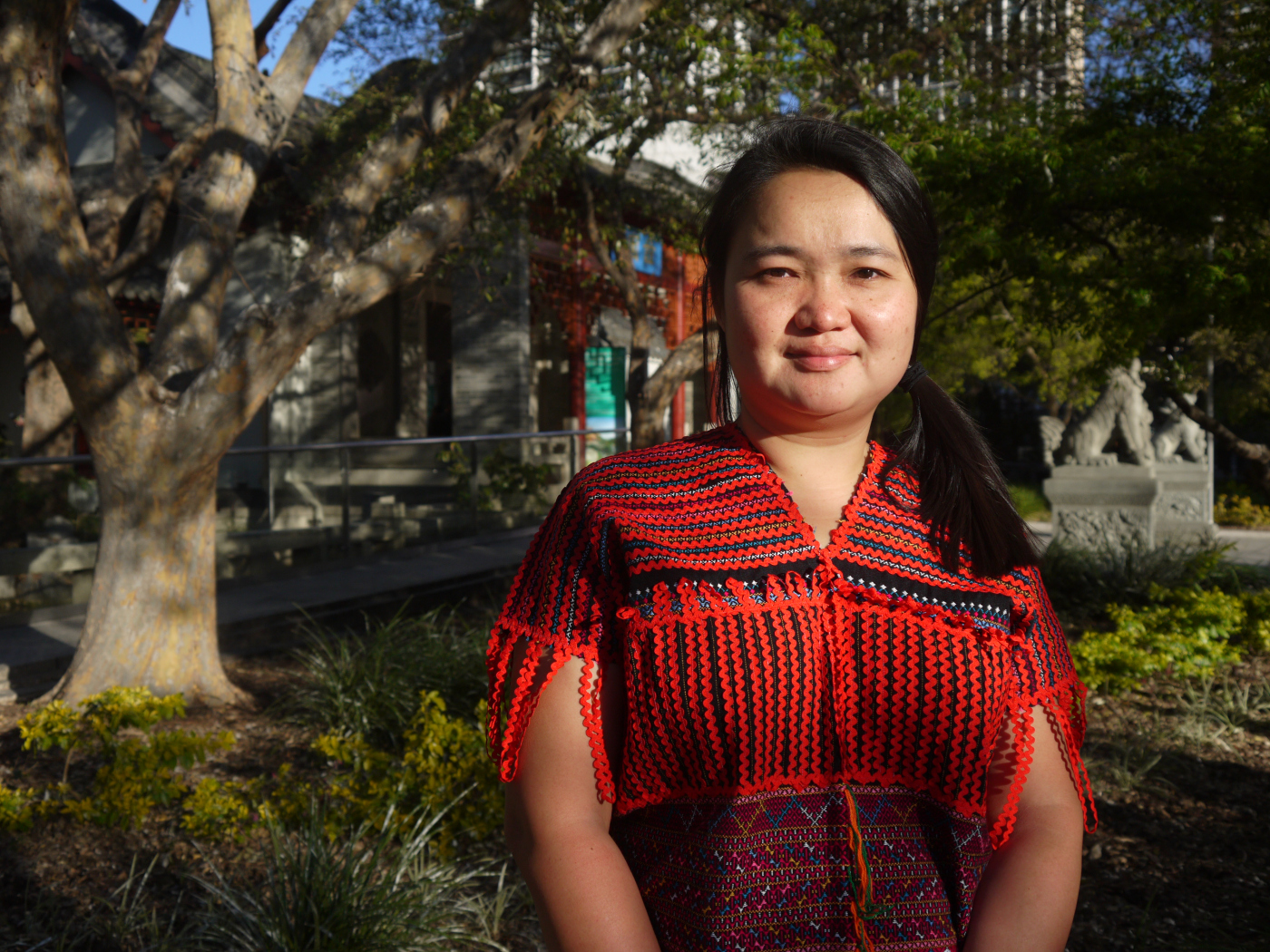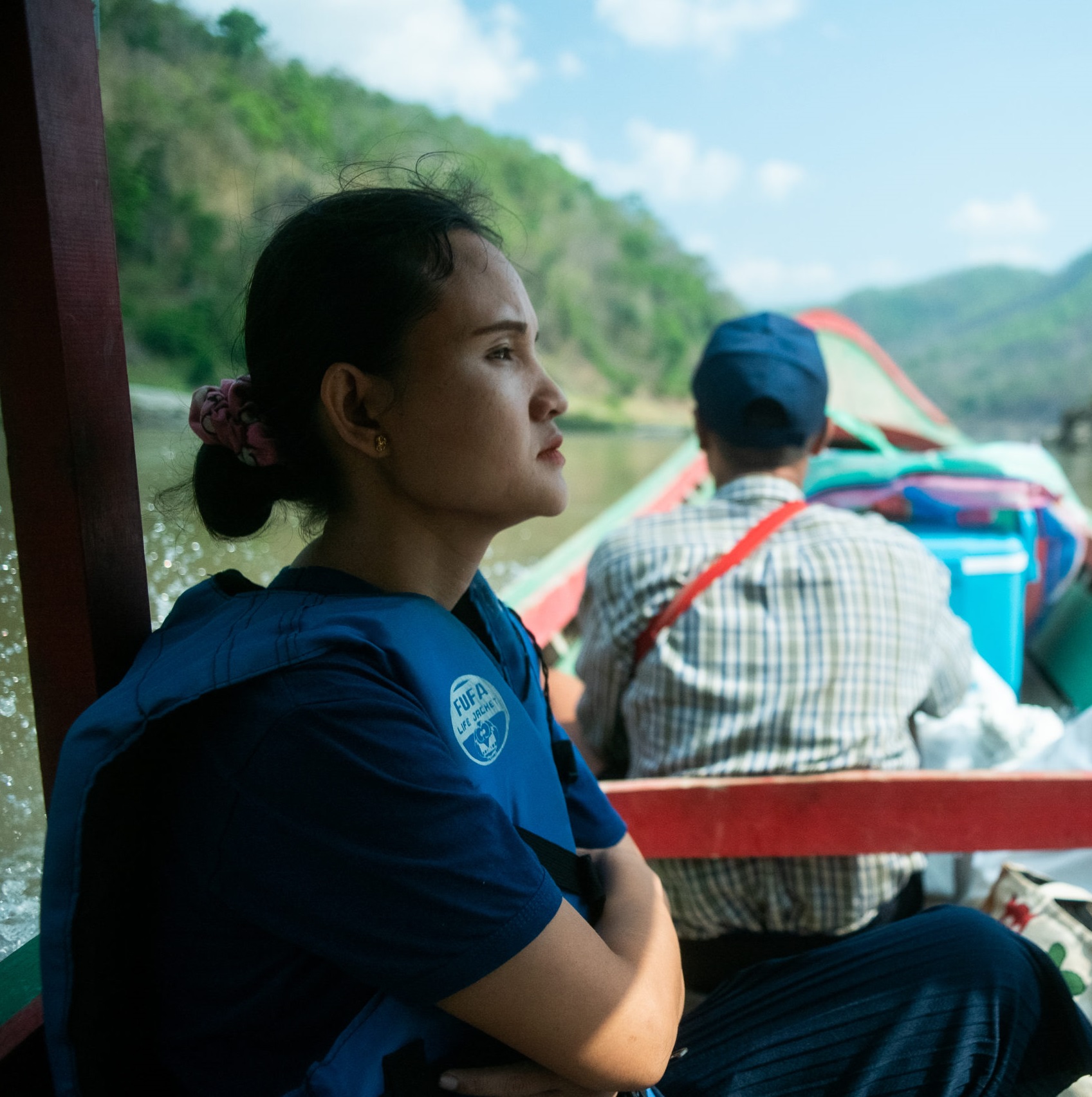This article was published more than 4 years ago.
Displaced by conflict at age 11, Naw K’nyaw Paw has traveled the world campaigning for peace in Myanmar.
As general secretary of the Fund-supported Karen Women’s Organization (KWO)—a leading women’s rights group of more than 60,000 Karen minority women—she’s advocated in Geneva, New York, and Washington for the human rights of her community. In 2019, the U.S. State Department presented her with its International Woman of Courage award for her unwavering commitment to building peace.
But alongside her lifelong dreams of peace and equality for the Karen people, she’s never lost sight of their basic needs. As she says, “It’s very difficult to just focus on training [activists] when people are hungry.”
When the novel coronavirus began to spread in Myanmar, preventative measures disrupted aid, restricted travel, and made earning a living impossible for internally displaced people (IDPs) and refugees living in camps along the Myanmar-Thailand border.
The government’s official line may have been “no one left behind,” but some in the camps say they’ve survived only because of K’nyaw Paw and the extraordinary work of KWO.
“When travel was under lockdown and restrictions were in place, my community was in big trouble,” says Naw Hser Eh, a 63-year-old Karen woman living in the Ei Tu Hta IDP camp, home to more than 2,000 Karen people who have been displaced by one of the longest ongoing civil conflicts in the world. “[KWO] really saved our lives.”

Myanmar’s central government has largely excluded ethnic minorities from their pandemic response, failing to even translate important health information into many indigenous languages. With the Fund’s support, KWO has stepped in to distribute thousands of masks, deliver hygiene products to women, and translate critical information about prevention and protection against COVID-19 into the Karen language.
“KWO helps the most vulnerable people in our community,” says 54-year-old Saw Kler Paw, who also lives in the Ei Tu Hta camp.
In addition to health care, KWO also provided clean drinking water and food to families in the camps—five kilograms of rice per person, each month. “Due to KWO’s support, we did not go hungry” says Saw Kler Paw. “We did not starve.”

Alongside service provision in refugee camps, IDP areas and conflict-affected communities, KWO has continued advocating for peace and equality in Myanmar. Earlier this year, K’nyaw Paw successfully lobbied the Karen leadership to change discriminatory state laws that undermined women’s rights. “When these laws are implemented in our communities,” she says, “they will have a big positive effect on the quality of life for Karen women and children.”
But despite these great strides, the pandemic looms large in Myanmar and some fear that the worst may lie ahead. After a deadly second wave in October, COVID-19 cases are on the rise again.
Humanitarian aid to Karen camps has been declining for years, limiting access to basic services. In August, flooding destroyed dozens of houses. And after a devastating drought during rice growing season, the crops that many Karen families rely on won’t last long.
“We are worried that this virus will come to our areas,” says Naw Hser Eh. “If that happens, how can we survive it? We still need K’nyaw Paw and KWO’s help.”
Like locally rooted activists around the world, K’nyaw Paw is a vital lifeline for her community, and a source of hope for tens of thousands of vulnerable Karen people who depend on KWO.
The Fund is proud to stand with K’nyaw Paw and to ensure that the women activists of KWO have the resources they need to ensure the health, safety, and survival of their community.


